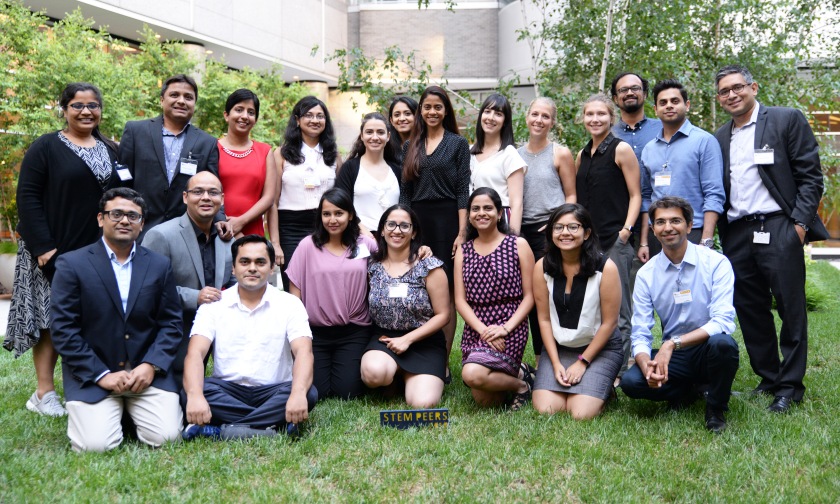Career Support Group hosted their annual conference yesterday at NYU Langone. It was quite an event. I was one of the volunteers. It wasn’t completely a selfless act though. I acquired so much experience, and for a good cause. Here are some reasons why #STEMPEERS2018 struck my personal chord.

Let’s start with the leadership.
Nobody goes that extra mile for a leader they don’t love. A good leader (from my amateur POV) involves you in a harmonious work environment. This leads to happy employees. That leads to productivity and efficiency and ultimately to the company’s success. The situation gets a tad harder when you are running a non profit. Because now you are dealing with volunteers. That lack of paycheck has to be made up by inspiration/ motivation. It’s hard. Somehow, though, Ananda and Abhi make it work, and that too with that warm smile on their faces.

Enthusiastic collaboration, anyone!
From science to organizing an event, collaborations are tricky. You have to work like cogs in a machine. How do you make that happen virtually? Trick question! By a good strategy and communication of course. INET NYC was perhaps the perfect choice. Young, full of energy, vibrant people never hurt nobody. What a perfect compliment they were!
A paperless event
The founders pushed for a paperless event. There weren’t brochures or pamphlets. We completely relied on our ‘smart’ (smartphone reference) audience and our volunteers to get a whole day of conference, including parallel sessions in two different rooms, to go by without breaking a sweat.

No food wasted
When you host a day long event catering to 220 people, mostly grad students and postdocs, you have got to feed them. One might ask what’s so particular about that. Well, you cannot run out of food; there has to be access to caffeine; and there has to be food breaks nicely dispersed among sessions. I know for a fact that food wastage is a huge problem at many conferences, big and small. So when you have 50 no-shows, food is bound to be left over. What better way than to end the day by walking all the left overs to the homeless shelter right next door. I hear some of my team members (food team) also got hugs. I wonder where was I!

Small teams don’t matter
We did a lot of strategic planning before the event. Small teams to help bigger teams to help even bigger teams. However, the best organizations are when every volunteer has one aim- to help the larger team in question. I was amazed by all the mix and match of volunteer jobs that happened on the spot, during the event. I am so humbled to be part of a beautiful team comprising of wonderful human beings. There was so much to be learned from each being it was inspiring.
 That personal touch though!
That personal touch though!
This was a career development conference. This was a professional event. But we are so much more than our job. We are us. CSG’s essence is in that personal touch. You make personal connections with people not their designations.
If you want to attend a conference, and leave with connections stay tuned for #STEMPEERS2019. You will have a holistic day filled with intellectual growth, diverse network, and memories to look back to.

